Below is the chat activity archive from the panel discussion & community call on “What Is An Aikido Response To Systemic Racism?” held on June 10th, 2020. To watch the replay of this important community call GO HERE!
00:28:07 Liese Klein: Liese Klein, New Haven Aikikai, New Haven, Conn.,
00:28:09 Michael (2 Rivers Aikikai, Portland, OR): Michael-2 Rivers Aikikai, Portland, OR
00:28:12 EPayne: Hello Eric Payne from Harrisonburg Va
00:28:14 Greet De Baets: Hi Everyone, Greet from Belgium, Ban Sen Juku Aikido
00:28:15 Wendy: Hello from Oregon in the States.! Wendy
00:28:15 Kate Thompson: Kate Seattle
00:28:18 Kraig Rice: Santa Barbara, CA
00:28:20 NOLA Aikido: Brian Levy from New Orleans
00:28:25 Mandy Barber: Mandy Barber – San Jose, CA
00:28:26 Fred Phillips: Fred Phillips here, hi from Albuquerque
00:28:27 Bill Wittig: Bill Wittig – Heaven & Earth Aikido in Virginia
00:28:34 Christine Cornell: hi! christine, two cranes aikido
00:29:10 Sara G Snell: Hello everyone, Sara from Two Cranes Aikido
00:29:19 Don & Jet: So great to see so many famliliar faces on this call!
00:31:54 Aiden Webb-Allender: I forgot to say what aikido dojo I go to… it’s Evolve Aikido
00:32:33 Gary: thank God she said that
00:32:51 Phlaurel Possible: Greetings & respect to all. Phlaurel here, from Minneapolis, training with Minnesota Ki Society.
00:33:24 Wendy: Wendy – Aikido of Akbany
00:34:43 megan rodriguez: how to do you spell that
00:34:57 megan rodriguez: Love translation*
00:35:38 Tom Burden: Megan, you mean reigi?
00:36:11 megan rodriguez: I think BUDDO?
00:36:20 Wendy: Budo
00:36:27 megan rodriguez: oh ok thanks so much!
00:37:51 Kimberly Richardson: thank you ! kimberly richardson from Seattle
00:51:48 Don & Jet: Love that— thanks Sam!
00:52:01 Phlaurel Possible: Thank you for speaking that so clearly, Sam.
00:52:04 Robert Gutierrez: Thank you Sam. Wonderfully said.
00:54:06 Kimberly Richardson: so well said Mallory!
00:54:17 Tara: Is the pandemic foe or mercy-ful partner?
00:54:35 Calvin Haney: The narrative of ‘who’ does Aikido skews towards white…
00:54:49 Jamie Zimron: Very clear, powerful and on point Sam and Malory 🙏
00:55:18 Calvin Haney: Cost, context, and applicability to underserved communities makes it really difficult to make the connection
00:56:20 Lynne Morrison: great conversation. sorry I have to go..
00:57:01 Jonathan Knipping: Amazing to me is that even within the Aikdio community there is a lack of consensus that there is a problem!
00:57:46 Jamie Zimron: “Who is missing from our mats?”
00:59:01 megan rodriguez: pick up you dojo and move it to the HOOD !!!
01:00:41 Nadine A: Directed, public and collective about addressing inclusion and equity
01:01:00 Jonathan Knipping: Public statements are good. Including more people in the dojo would be good. What kinds of social service actions can dojo communities do?
01:02:37 Tes Tekelu: is there any statistics that shows the % of black and brown people in Aikido?
01:03:19 megan rodriguez: IM GLAD I SPELLED DOJO CORRECTLY as im new to this method
01:03:39 Rolando Morales: when i trained at the new york aikikai in the 90’s, RIP Sugano Sensei, there was a great amount of diversity, which included people from many backgrounds and this also included many different types of workers, it was like training on a NYC subway. it made me a better Aikidoka…a better human being. Our dojos need this.
01:04:04 Amanda Rain: Social service actions are usually specific and nuanced to the specific area you’re located in. There are likely actions already happening in most, if not all, neighborhoods. Seek them out and see how you can help. That’s generally the best approach.
01:04:21 Gina Lagalbo: Policies and inclusivity statements need to be aggressively antiracist. The traditional hierarchy of Aikido makes putting that into action difficult
01:04:39 Kristin Engelbrecht Bleem: sam- yes. thank you for expressing that so clearly
01:04:52 Mike: I just went to my own dojo’s web site. Nothing but white faces in all pictures. Never even occurred to me. Oy.
01:05:05 Phlaurel Possible: Thank you for speaking that, Sam. Agreed. Important to name & be willing to train with consciously, actively, on purpose.
01:05:34 Estelle Ostro: To your point Sam, I think that “it’s a Japanese martial art based in Japanese culture” is also used to mask a lack of cultural responsiveness because in many ways American dojos only keep the aspects of Japanese culture that perpetuate white American cultural norms
01:06:14 regena: Could you give some examples of “micro-aggressions”…so that we are not doing this, not knowing we are?
01:06:40 Robert Gutierrez: Yes I’d like to know more about micro aggressions as well.
01:07:05 Calvin Haney: Crossing the tracks is something that FIrehorse Dojo does well in New Haven and still have kids on the ground (street) don’t see it as an option
01:07:24 Aiden Webb-Allender: “AMEN”!
01:07:28 Gary: got to be a non threatening negro
01:07:34 Amanda Page: Micro-aggressions are mental shourtcuts that reflect unconscious bias
01:07:35 Calvin Haney: I spend the dojo training time trying to decode the effects of racism before I can irimi Nage
01:07:40 Gina Lagalbo: White Fragility is required reading for all while aikidokas. Explains a lot without making Black folk fo the educating
01:07:41 Jen Shanklin: dude
01:07:48 Meredith Abel: good link for microaggressions: https://academicaffairs.ucsc.edu/events/documents/Microaggressions_Examples_Arial_2014_11_12.pdf
01:07:51 Robert Gutierrez: WOW
01:08:06 Amanda Page: Such as” “so and so is always so angry,” “so and so is so articulate”
01:08:10 Robert Gutierrez: oh my gosh I’m so sorry for all of that Sam.
01:08:16 Calvin Haney: I have to first engage with diffusing the work of not fighting WHITE FOLKS on the mat before I can partner well Then being a big guy I have to worry about space
01:08:56 Phlaurel Possible: Echoing that “White Fragility” reading recommendation.
01:08:58 Jen Shanklin: how do we make the dojo a safe enough space that people can point out and speak out directly about microaggressions
01:09:09 Jen Shanklin: so we can learn better
01:09:19 Jen Shanklin: as they happen
01:09:21 Teri Pierson (she): If we white folks in dojos are not doing our own work to recognize & interrupt microaggressions we are contributing to the burden I hear Sam talking about.
01:09:23 Karla: +1 on reading White Fragility
01:09:31 Gina Lagalbo: Amen Teri
01:09:42 Cameron Panee: Word teri
01:09:52 Robert Gutierrez: My wife has a copy of that book. It looks like I’ll need to pick it up.
01:09:59 Sharon Doetsch-Kidder: thank you. I appreciate your generosity in sharing your experiences with us
01:10:23 Calvin Haney: The degree of guard I experience as a large Black man on the mat is a challenge…one I choose to accept, but a challenge
01:11:19 Amanda Page: Scaffolded Anti-Racist resources https://docs.google.com/document/u/0/d/1PrAq4iBNb4nVIcTsLcNlW8zjaQXBLkWayL8EaPlh0bc/mobilebasic
01:11:29 Jonathan Knipping: Here’s my recent revelation as a white guy: as Teri point to: racism is NOT a problem for people of color to solve for white people. It is a problem originally created by white people and we must take the main responsibility for solving it
01:11:31 Nadine A: The flip side is also possible — that Black people can be themselves and undo the burden the world puts on them and discover things about themselves. And let go of the lies the society tell when they are in a truly welcoming space where “I see you, I hear you, I respect you”
01:11:47 Jennifer Yabut: Thanks Meredith! This is very useful.
01:11:51 Jens Eventyr: “Beyond Inclusion Beyond Empowerment” by Leticia Nieto is a great resource for learning about racism
01:11:52 Fred Phillips: I suspect we’ve often lost students because they don’t see anyone in the dojo who look like they do. Since we’re now looking at practicalities, how can we deal with this? It’s made me sad whenever it’s happened. I must assume these students could not find buddies to accompany them in the aikido adventure. A sensitive question. Would I be condescending to such a student by assuming s/he feels alone? And by thinking it’s my job to find another student who is “like them”?
01:11:57 Bruce Emerson: Calvin -Thanks for working with that guardedness for those around you.
01:12:49 Diana Daffner: Perhaps fewer POC come to Aikido dojos because they prefer to avoid the stressful burden of self awareness that Sam & Eric have spoken about…
01:13:26 Estelle Ostro: kudos sam
01:13:56 megan rodriguez: yes the sliding scale and local engagement is key
01:14:48 Rolando Morales: go to your public schools…as a public school special education teacher of 30 years i am always trying to bring my students with special needs to our dojo. my kids are mostly black and brown, can’t afford the price. Kayla Feder Sensei has always supported this initiative and opened the dojo. so grateful to Sensei for this …still so much more work to be done.
01:14:57 Jennifer Yabut: Yes, my dojo has a sliding scale for members who need it.
01:15:25 Diana Daffner: It sounds like an assumption is being made that the entire dojo is behind this effort to be inclusive and anti-racist etc…
01:15:34 Bob p: Yes. Money is a large issue. Finding a way to get folks on the mat without financial hardship or embarrassment BOUT THAT
01:15:47 Robert Gutierrez: Our dojo offers reduced rates or fee deferral for those that are not able to afford classes.
01:15:57 Calvin Haney: ^^^to Bob p
01:16:01 Sharon Doetsch-Kidder: we also make it clear that cost is not a barrier to training.
01:16:11 tengu: Diana, my thought exactly
01:16:20 Sharon Doetsch-Kidder: love the idea of a paid Deshi program
01:16:26 Cassandra: Many dojos have women-only training sessions (which is awesome). Maybe we should consider having training sessions only for people of color?
01:16:36 Estelle Ostro: Consider also class times: are they accessible to people with shift work? school-aged children, young children? public transportation schedules?
01:16:41 Cassandra: in an inclusive way, not a segregational way. Hm.
01:16:46 Sharon Doetsch-Kidder: we also offer work exchange
01:16:51 Fred Phillips: Assuming that people of color are poor is NOT a good starting point.
01:16:54 Cassandra: Maybe not. Not sure.
01:16:54 Calvin Haney: ^^^Estelle Ostro
01:17:14 Bob p: Agreed Fred
01:17:17 Meredith Abel: “Assuming that people of color are poor is NOT a good starting point.” important
01:17:22 Diana Daffner: I’m no longer part of a dojo. But in my local, “interested-in-enlightenment” community, I am being surprised by people who say racism doesn’t exist.
01:17:42 Jamie Zimron: I think we need to deal with the many ways that segregation and bias persist, intended and not but parts of all.our realities
01:18:17 Gina Lagalbo: Identify a number of people in dojo that are committed to this as “point people” to go to for issues of micro aggression, sexism, whatever. Those people can lead the rest of the dojo in this situation
01:18:23 Amanda Page: Speaking up about racist comments in the structure of aikido is hard but must be done
01:18:35 Katie McKee: Thank you, Miles, wonderful panel and discussion. I have another event @ 7p.m. Bowing out
01:18:35 Gary: thank you sam
01:18:36 Amanda Rain: Can the comments in the chat be emailed out to everyone? So many good resources here…
01:18:50 Estelle Ostro: A lot of this conversation is getting at the intersection of class and race, but also consider that a lot of the class-specific solutions will also help with aikido’s Young People Problem
01:18:59 Diana Daffner: Malory, are the police who train in your dojo mostly white? Have you had conversations with them about racism?
01:19:02 Estelle Ostro: *conversation in the chat
01:20:23 Bob p: Aiki Sensei are human and struggling as well. They may want to encourage dialog like this but not comfortable when actual conflict is present
01:20:31 Diana Daffner: Amanda – you can SAVE the Zoom chat fie. Before leaving, click the 3 horizontal buttons you see on the right of the chat box..
01:20:58 Gary: my entire life thank you
01:21:12 Calvin Haney: My pre recorded messages about my size and race is the I can’t use ATEMI. Or i’ll get fired, fired upon…a risk on my life
01:21:22 Jennifer Yabut: OH GEEZ. I’ve been told that too: “You speak English very well!” That is because English is the only language I know, dumba$$.
01:21:50 Gina Lagalbo: Calvin I am sorry. Hearing your words.
01:21:58 Robert Gutierrez: Jennifer yeah I’ve head that I speak English real well way too many times.
01:22:04 Sharon Doetsch-Kidder: I appreciate the idea of having a posted conflict process also. and putting it into practice
01:22:11 megan rodriguez: same here supposedly im not Mexican because I speak “white’
01:22:11 Brandon Williamscraig: Practice Aikido 2.0 in your dojo. Actually practice language alongside physical technique and directly apply that practice to racist interactions.
01:22:26 Gary: its exhausting black people are exhausted!
01:22:28 Calvin Haney: ^^^Brandon
01:22:41 Robert Gutierrez: Wow I’ve been asked if I was the gardener at my own house. They wanted to hire me.
01:22:47 Jen Shanklin: but Sam already said it, maybe sometimes a smile isn’t the answer, sometimes you got to iriminage!
01:23:19 Bob p: I love training at dojo’s where this dialog is available. It is rare because we are all trying to be nice.
01:23:26 Cassandra: Maybe we can have weekly aikido training on racism
01:23:33 tengu: Good point
01:23:34 Sharon Doetsch-Kidder: loving aikido 2.0 idea also – could also do bystander training
01:23:39 megan rodriguez: no room for NICE, only room for AUTHENTICITY
01:23:53 Gina Lagalbo: Exist in that uncomfortability.
01:24:23 Bob p: Sounds great. Just speaking from my experience
01:24:26 tengu: especially for instructors. You test for 2 dan up – you have to attend some classes on human rights/antiracism/etc
01:24:40 Gina Lagalbo: Tengu that’s great
01:25:19 Boston Aikikai: Thank you.
01:25:31 Cassandra: “If we’re not actively training this as white folk, then we are doing harm.”
01:25:35 Sharon Doetsch-Kidder: agree with especially for instructors. You test for 2 dan up – you have to attend some classes on human rights/antiracism/etc
01:25:49 Kate Thompson: Respect and Honor! Thank you I don’t do Aikido, and I appreciate this consciousness being brought here. Have to go to another meeting. Thank You!
01:26:30 Estelle Ostro: kudos sam 🙂
01:26:31 Calvin Haney: This reading help me make some connections AiKiDô: The Trinity of Conflict Transformation by Winfried Wagner
01:26:37 Sharon Doetsch-Kidder: good point. money is energy.
01:27:08 Estelle Ostro: and hey. maybe take a critical look at your dojo’s finances…..
01:27:14 Bill Wittig: “All life is a manifestation of the spirit, the manifestation of love. And the Art of Peace is the purest form of that principle. A warrior is charged with bringing a halt to all contention and strife. Universal love functions in many forms; each manifestation should be allowed free expression. The Art of Peace s true democracy.”
— O’Sensei, “The Art of Peace”
01:28:13 Amanda Rain: Harvard has an implicit bias test https://implicit.harvard.edu/implicit/takeatest.html
01:28:52 Cameron Panee: Highly recommend everyone take that test
01:28:58 Calvin Haney: They would freeze on the ATEMI!
01:29:01 Kimberly Richardson: Miles and all the presenters, thank you very much for holding this vital conversation. I am particularly moved by the discussion about irimi now in addressing systemic racism. We have an obligation to change the status norms and strip down what we are examining and changing in life and in aikido regarding true equality.
01:29:06 regena: Two questions to ask: 1) What gives you the right to say this? 2) On what basis do you make this claim?
01:29:31 Meredith Abel: Questions like “Why did you mean when you said that” and “Do you really mean that?” do a lot to get people to do the thinking themselves.
01:29:45 Meredith Abel: *what
01:40:48 Bob p: Too short
01:40:56 Sharon Doetsch-Kidder: too short, yes
01:41:02 Aiden Webb-Allender: it was interesting
01:41:49 Gina Lagalbo: Great idea from our breakout session: Zoom-kido is a great opportunity to break away from dojo centric model
01:42:11 Bruce Emerson: Thanks Sam — got some take homes from you again today
01:42:15 Leah Panganiban (she/her): I just wanted to share that being colorblind is racist: https://www.tolerance.org/magazine/fall-2009/colorblindness-the-new-racism
01:43:52 Sharon Doetsch-Kidder: thanks for sharing that, Rolando
01:51:58 Amanda Rain: The Great Reckoning around racism has arrived. Thank you all for being in this moment together.
01:52:24 megan rodriguez: IT WAS GREAT SHARING THIS SPACE WITH YOU ALL <3
01:53:02 Bill Wittig: Thank you, All.
01:53:05 Fred Phillips: Amanda Rain, I hope you are correct.
01:53:15 Lisa Jensen: Thank you all, and thank you Miles, for organizing.
01:53:18 tengu: Thank you all
01:53:19 Amanda Rain: Me too Fred.
01:53:19 Robert Gutierrez: Thank you all for sharing and opening our eyes and minds.
01:53:21 Jonathan Knipping: Thanks everyone, especially the panel!
01:53:22 Gina Lagalbo: Thank you.
01:53:25 Michael (2 Rivers Aikikai, Portland, OR): thanks to everyone
01:53:27 Brian Levy: Thank you very much, y’all!
01:53:28 Marie Dohoney: thank you all
01:53:33 Aiden Webb-Allender: thank you
01:53:54 Fred Phillips: Thank you, Miles. A great event. I hope it will spur much right action.
01:54:14 Gary: Good to see you again Sam. Be careful and safe on the front lines
01:54:25 Janice Taitel: Thank you my wise child!
01:54:37 tengu: better antiracist than right. :3
01:54:57 tengu: im sorry
01:55:14 Jennifer Yabut: Thank you Miles for bringing us together for this discussion, and thank you for everyone on the panel as well!
01:55:18 Janice Taitel: And thank you to all of you!
01:55:21 Caitlin: Thank you Miles Kessler.
01:55:30 Patrick Miller: thank you everyone! this was wonderful
01:55:30 Brian Levy: Thank you, Miles!
01:55:40 Kenneth Bedeker: Thank you everyone that was educational and inspiring. Take care everyone!
01:55:40 Cameron Panee: Thank you all for sharing this space everyone
01:55:54 Jonathan Godsey: Thanks
01:56:08 Cesar San Miguel: I can’t unmute myself 🙁
01:56:08 Aiden Webb-Allender: thank you! ❤️🧡💛💚💙💜🖤🤍🤎
01:56:11 Robert Gutierrez: Thank you
01:56:15 Alex Gholz: Thank you
01:56:17 Cassandra: wait

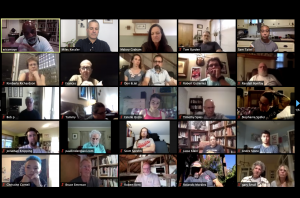
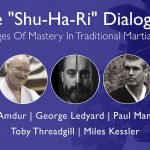
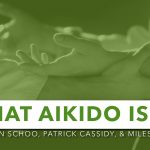
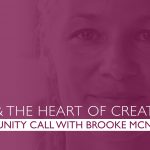
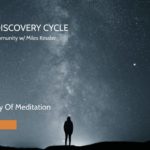

Please note: I reserve the right to delete comments that are offensive or off-topic.